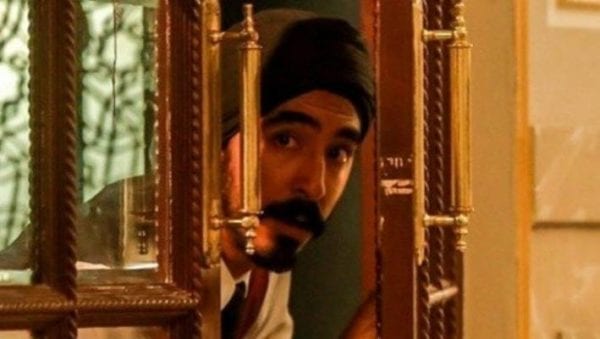Hotel Mumbai, 2019.
Directed by Anthony Maras
Starring Dev Patel, Jason Issacs, Armie Hammer, Nazanin Boniadi, Anupam Kher, Amandeep Singh, Suhail Nayyar, Kapil Kumar Netra, Tilda Cobham-Hervey
SYNOPSIS:
A dramatic recreation of the terror attack on the Taj Hotel in Mumbai, which chronicles the movement of the terrorists and victims on that fateful night in 2008.

Contemporary cinema has taken us beyond the point where we debate whether visceral accounts of tragedies are necessary. It has become an important medium in documenting some of the most heinous displays of human destruction of our time. Crafted sensitively and correctly handled, they act as important reminders of events too quickly forgotten, largely because they’ve sadly become commonplace on rolling news channels and discarded newspaper front pages.
Evidence of this can be found in the fact that the events depicted in Anthony Maras‘s recreation of the Taj Hotel attack took place in 2008. A relative blink of the eye passing of time, as well as subsequent attacks, have made the Mumbai massacre another footnote in the history of terror, and this lean, often terrifying exercise in filmmaking acts as a stark reminder of events, as well as being testament to the humanity glimpsed, and too often lost amongst the horror.

The set-up is comparable to similar true-terror fare, such as the Paul Greengrass one-two of United 93 and 22 July. We get to see the perpetrators of the crimes navigating their way through the busy streets, like single-minded spectres, only occasionally communicating via radio. This is interspersed with the roll-call of characters who’re going to be caught up in the coordinated carnage, before the threads collide in a propulsive, fist-clenching fashion.
As with most ensemble pieces, some of the arcs are more successful than others, with Hotel Mumbai‘s weakest element being its occasional descent into disaster movie cliché during certain threads. This usually occurs in the form of rousing speeches, or Die Hard action beats.
We don’t get to know too much about the characters beyond their superficial archetypes. Jason Issacs enjoys chewing the scenery as a misogynistic Russian, which is effective in a boo-hiss Lucius Malfoy kind of way, but he might as well have an arrow with the word ‘redemption’ pointing to his head. Similarly, Armie Hammer, while delivering very good all-American stoicism and leading-man charisma, feels a little too one-dimensional. They’re symptomatic of a register of characters you wouldn’t invest in if it wasn’t grounded in the horrific maelstrom they’re placed within.

That is apart from Dev Patel’s Arjun, who emerges from the crowd as Hotel Mumbai‘s most rounded character. We’re given an idea of his home life, and his beliefs, which provide a foundation for the way in which he acts throughout the siege. He wears shoes that are too small for him, blistering up his feet, but he has no choice because he needs the work, and Patel imbues him with an effortless likeability that makes him the big-beating, and pulse-pounding heart of the movie.
Some light is thrown on the terrorists motivations at they communicate with the Jihad’s organiser, which can sometimes be ill-judged in such fare, and although it doesn’t always work here, the young actors do a brilliant job of depicting their struggles.
They’re terrifying when they do flip-the-switch to unrelenting killers, and Maras doesn’t hold back when it comes to the unflinching way in which the more brutal acts of violence are executed. It walks a fine line in terms of the explicit nature of the scenes, but is ultimately necessary when truthfully documenting such acts.
Riddled with tension and kinetic sweaty-palmed action, Hotel Mumbai is undeniably thrilling cinema, buoyed by a wholly empathic performance from the wonderful Dev Patel. It’s just a shame that more of the Hotel’s guests weren’t as interesting as him.
Flickering Myth Rating – Film ★ ★ ★ / Movie ★ ★ ★ ★
Matt Rodgers – Follow me on Twitter @mainstreammatt











